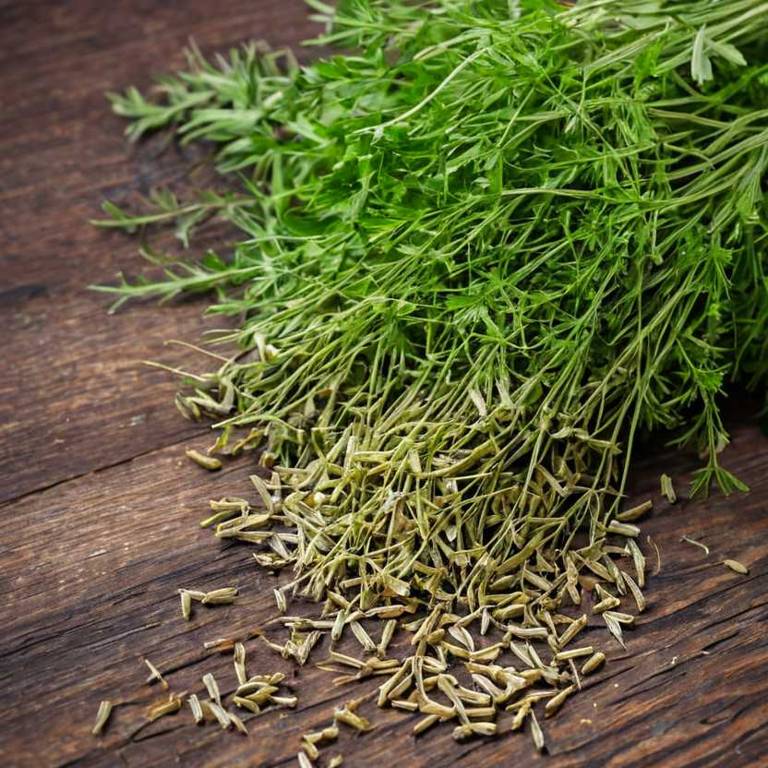Fennel (Foeniculum vulgare)
Fennel (Foeniculum vulgare) is a member of the Apiaceae family, native to Mediterranean Region, Europe, and Middle East. Traditionally, its fruits, seeds, and leaves have been used for infusions, decoctions, and powders.
This herb is particularly valued for its carminative, antispasmodic, and expectorant actions, and has a long history of use in european herbal medicine, mediterranean herbal traditions, and ayurvedic medicine.

Quick Facts / Key Information
| Common Name | Fennel |
|---|---|
| Scientific Name | Foeniculum vulgare |
| Plant Family | Apiaceae |
| Genus | Foeniculum |
| Species | vulgare |
| Native Range | Mediterranean Region, Europe, Middle East |
| Plant Parts Used | Fruits, Seeds, Leaves |
| Primary Medicinal Actions | Carminative, Antispasmodic, Expectorant |
| Primary Traditional Systems | European Herbal Medicine, Mediterranean Herbal Traditions, Ayurvedic Medicine |
| Historical Preparation Methods | Infusion, Decoction, Powder |
Botanical Identity
- Scientific Name
- Foeniculum vulgare
- Common Name
- Fennel
- Synonyms / Alternative Names
- Common Fennel, Sweet Fennel, Wild Fennel
- Plant Family
- Apiaceae
- Genus
- Foeniculum
Botanical Description
- Growth Habit
- Perennial herbaceous plant.
- Height
- It typically grows to a height of 1 to 2 meters.
- Leaves
- Broad leaves with upper surface green and lower surface pale green, featuring prominent stomatal bands along the midrib.
- Flowers
- Umbellate inflorescences with white to pale yellow flowers, actinomorphic, having 5 petals and 5 sepals, with a prominent central disc and slender stamen cluster.
- Stems
- Cylindrical, hollow, aromatic, ridged, and terete, with a smooth surface, the stems are upright, unbranched, and have a pith that is white and spongy.
Traditional Uses / Historical Use
Traditional Systems
- European Herbal Medicine
- Mediterranean Herbal Traditions
- Ayurvedic Medicine
- Traditional Chinese Medicine
Historical Preparation Methods
- Infusion
- Decoction
- Powder
- Culinary Use
Medicinal Actions
- Carminative
- In herbal texts, considered a soothing carminative, for digestive process support.
- Antispasmodic
- Historically regarded as a warming antispasmodic, in smooth muscle contexts.
- Expectorant
- In herbal literature, noted as a calming expectorant, in respiratory system contexts.
- Diuretic
- Commonly referenced as a moderate diuretic, in fluid-regulation contexts.
Active Compounds
- Essential Oil
- A mixture of naturally occurring compounds responsible for plant aroma.
- Coumarin
- A group of secondary metabolites present in seeds, roots, and leaves.
- Flavonoid
- Plant-based polyphenolic compounds frequently distributed throughout aerial plant parts.
- Phenolic Acid
- Naturally occurring phenolic compounds present in many plant species.
Modern Research Overview
Scientific literature concerning this plant spans multiple areas, including phytochemistry and laboratory research. Detailed analysis of published studies is not included at this time and will be added as part of future editorial expansion.
Safety & Contraindications
- General Precautions
- Precautionary considerations have been reported in relation to this herb.
- Contraindications
- Contraindications related to this herb have been noted in traditional use and available sources.
- Allergies
- Allergic reactions have been reported, particularly in individuals sensitive to related plant families.
- Drug Interactions
- This herb has been associated with interactions when used alongside certain pharmaceutical medications.
- Toxicity
- The toxicity profile of this herb has not been clearly established.
- Pregnancy & Breastfeeding
- Safety during pregnancy and breastfeeding has not been well documented.
Preparation & Usage Methods
- Infusion
- Plant material is steeped in hot water to extract water-soluble compounds.
- Decoction
- Decoctions are made by heating plant material in water for an extended time.
- Poultice
- Plant parts are crushed or moistened and placed directly on the body.
- Capsule
- Plant material is processed into powder and sealed in capsules.
- Culinary Use
- Plant material is incorporated into food or beverages for flavor or aroma.
Growing, Harvesting & Storage
Growing / Cultivation
- Soil
- Prefers loamy soil with well-drained conditions. Typically grows best in organically rich soils.
- Sunlight
- Thrives in full sun. Tolerates full sun to partial shade.
- Watering
- Prefers well-balanced moisture levels. Tolerates periodic dry conditions.
Medical Disclaimer
The information provided on this page is for educational and informational purposes only. It is not intended to diagnose, treat, cure, or prevent any medical condition. Always consult a qualified healthcare professional before using any herb for medicinal purposes.